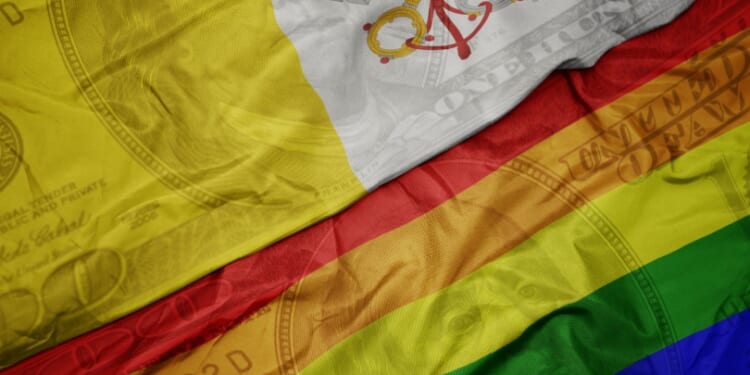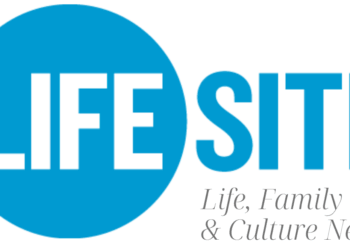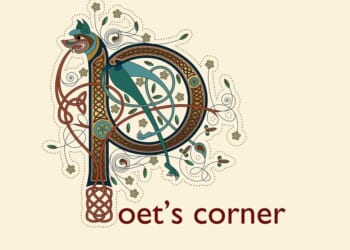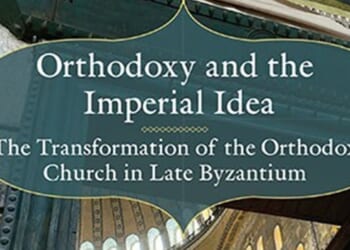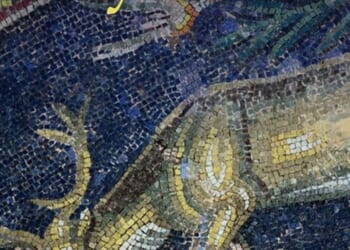(LifeSiteNews) — The Third Synodal Assembly of Churches in Italy has taken a significant step toward normalizing and affirming homosexual activity and gender dysphoria in a document released Friday.
Issued in Rome, “Yeast of Peace and Hope” utilized unprecedented language to express openness toward disordered identities that may encourage those who have fallen into these tragic conditions to further risk the salvation of their immortal souls.
Under section 30(c) dedicated to “Caring for relationships” with an accompanying subtitle quote from the late Pope Francis “Tutti, tutti, tutti” (“Everyone, everyone, everyone”), the Italian ecclesial authorities with an overwhelming majority committed themselves to the promotion of openness and recognition of homosexual and transgender identities.
This most sensitive issue of the entire assembly commits:
local Churches, overcoming the discriminatory attitude sometimes prevalent in ecclesial circles and in society, to promoting the recognition and accompaniment of homosexuality and transgender persons as well as their parents, who already belong to the Christian community.”
Utilizing deliberate terminology, the document explicitly eschews a “discriminatory attitude sometimes prevalent in ecclesial circles” without nuancing whether such discrimination is objectively just (such as in denying individuals in active and unrepentant homosexual relationships Holy Communion) or unjust (as in expressing distain toward such individuals).
It also deliberately seeks to go beyond tolerance or respectful understanding of those who struggle under such disorders in their pursuit of holiness through the Sacraments of the Church. Instead, it provides a genuine “recognition” of homosexual and transgender identities suggesting the grave sins to which such individuals are often openly inclined don’t compromise one’s sanctification in Jesus Christ but instead can be normalized.
Church in Italy to combat ‘homophobia and transphobia’
Despite Proposition 30(c) garnering the lowest level of consensus among synod participants, it still passed overwhelmingly with 672 of 826 casting their ballots in favor (81.35%) and 154 voting against.
The section goes on to propose that the Italian Episcopal Conference (CEI) promote designated “days” in broader society to combat attitudes such as “homophobia” and “transphobia”:
that the CEI supports with prayer and reflection the “days” promoted by civil society to combat all forms of violence and show solidarity with those who are hurt and discriminated against (Days against violence and gender discrimination, pedophilia, bullying, femicide, homophobia and transphobia, etc.);
Additionally, it proposes “that local Churches and Regional Episcopal Conferences appropriately train pastoral workers and make use of existing training experiences and practices already in place,” perhaps by government agencies, to fulfill these ends.
Though the document does not get more specific, it appears this provision could visualize even a commitment by the CEI to pray for the implementation of gender ideology propaganda in schools beginning in the early grades.
Regularizing adultery and fornication?
Also part of the document’s focus on inclusion are “those who remain on the margins” such as people in “stable affective and family situations other than the sacrament of marriage (second unions, de facto cohabitation, marriages and civil unions, etc.), along with “cohabiting couples who have in mind a future union in the sacrament of marriage.”
Unaddressed are the questions of inclusion in sacramental life and the conversion of those living in situations of objective adultery or fornication, which the Church affirms to be grave and Sacred Scripture reveals to be a cause for eternal death.
Homosexual acts a sin that ‘cries out to heaven for vengeance,’ all called to holiness
With regards to homosexual acts (sodomy), Sacred Scripture and the Church’s tradition qualifies them as one of the four sins that cries out to heaven for vengeance. The Catechism of the Catholic Church (CCC) affirms they are “acts of grave depravity” that are “intrinsically disordered” and thus, “(u)nder no circumstances can they be approved.”
Yet such individuals, who suffer such an inclination “must be accepted with respect, compassion, and sensitivity. Every sign of unjust discrimination in their regard should be avoided.”
Furthermore, these individuals who suffer such a trial “are called to chastity,” and through the striving for “virtues of self-mastery that teach them inner freedom” along with “prayer and sacramental grace, they can and should gradually and resolutely approach Christian perfection.”
Primacy of conscience?
Regarding the document, Archbishop Erio Castellucci, president of the National Committee of the Synodal Path, stated, “It is not a perfect text, but it reflects the path we have taken and the sense of faith of our communities.”
He went on to appeal to the individual conscience as having a primacy in such deliberations, classifying “Yeast of Peace and Hope” as “an act of ecclesial conscience.”
“The primacy of personal conscience, engraved in the conciliar texts, must inspire the assembly we are experiencing,” he said.
Yet, while the Church does affirm that an individual must follow the judgments of his conscience, even under penalty of sin, it stipulates that such judgments must proceed from a “certain judgment of his conscience” (emphasis added).
In this respect, the individual is just as obligated to properly form his conscience as he is to follow it. As the CCC teaches:
The education of conscience is indispensable for human beings who are subjected to negative influences and tempted by sin to prefer their own judgment and to reject authoritative teachings.
Thus, in this respect, especially for a Catholic, the Church also teaches that primary means for the formation of one’s conscience should include prayer, Sacred Scripture, and “the authoritative teaching of the Church.”
When such teaching is rejected by the Catholic—including prohibitions against fornication, adultery and sodomy—or if they take “little trouble to find out what is true and good, or when conscience is by degrees almost blinded through the habit of committing sin,” such a person remains “culpable for the evil he commits.”
Here is the Synodal church in practice: All Italian bishops agree to calling on Catholic churches to “commit to promoting the recognition and support of homo-affective and transgender people, as well as their parents” https://t.co/r2J5mChQlk
— John-Henry Westen (@JhWesten) October 27, 2025

